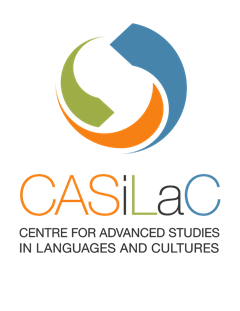CASiLaC War and Culture Seminar Series

Lard-eaters, Gayropeans, Sheeple (and prepositions) The enactment of online political identities during the recent Crimean crisis by Anne Marie Devlin.
Location: ORB 1. 24; Date: 24 February 2015; Time: 16.00
Whilst the stand-off between Russia and Ukraine continues, another battle is also underway. That is the struggle between language and identity. One of the first changes the Ukrainian interim government attempted to implement was the reversal of the 2012 law granting equal status to the Russian language. This was couteracted by the replacement of signs on the Crimean parliament buildings with Russian only. The objective of both actions was the same – to deny speakers of Russian, Ukrainian or Tartar a national identity; to equate national identity with a single language.
In addition to this, the battle is played out on a micro-level between anti- and pro-Kremlin Russians on political social media platforms where a variety of linguistic means are being employed by posters to position themselves and others in a highly politicised manner.
Using both qualitative and quantitative data gathered from two political social-media platforms, this paper explores firstly how lexical slurs and code-switching are used to enact and impose political identities and continues by investigating the enactment of a political identity through prepositional choice. Briefly, in Russian two prepositions collocate with the word ‘Ukraine’ – ‘v’ and ‘na’. Before Ukraine gained independence, ‘na’ was the default preposition and thus the preposition associated with Russian imperialism and the Soviet system. After independence, ‘v’ became the preferred variant of Ukraine thus signalling sovereignty and the end of communism. However, both are still in found in the discourse of Russian speakers across Ukraine and Russia.
Results indicate that ‘v’ and ‘na’ fulfil the role of political prepositions as choice is strongly predicated on the political leanings of the user. Therefore, it can be stated that in the highly-charged domain of political, social-media platforms, in a time of deep division and conflict, respondents enact a political identity not only through slurs and code-switching, but also deliberately in the form of prepositional choice.
CASiLaC
Established in September 2014, the Centre for Advanced Studies in Languages and Cultures (CASiLaC) supports a transdisciplinary culture of collaborative research across languages, literatures and cultures. CASiLaC serves to stimulate research initiatives, support our early career researchers and help define the critical role that Modern Languages, encompassing as they do areas as diverse as literature, drama, film, linguistics, area studies, can play within the Humanities; doing so in ways that also reflect on how to bring creative and original research into a conversation with the wider public. Through CASiLaC we will continue to contribute to national and international intellectual debates, drive cultural initiatives, and seek to influence policy and the basis of our core research activity
